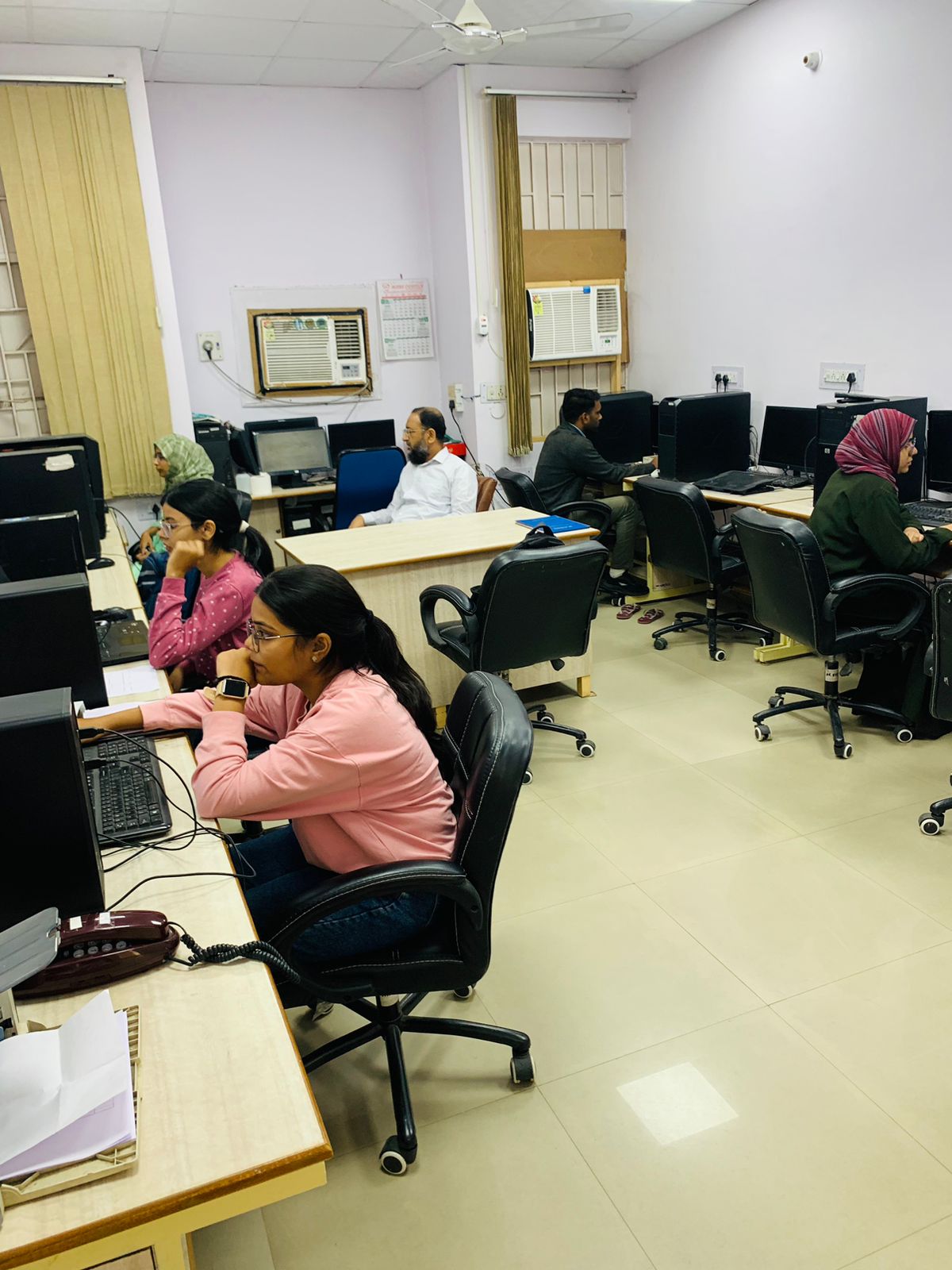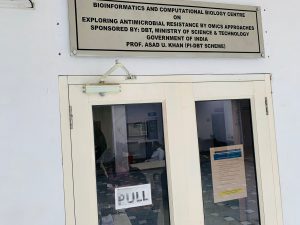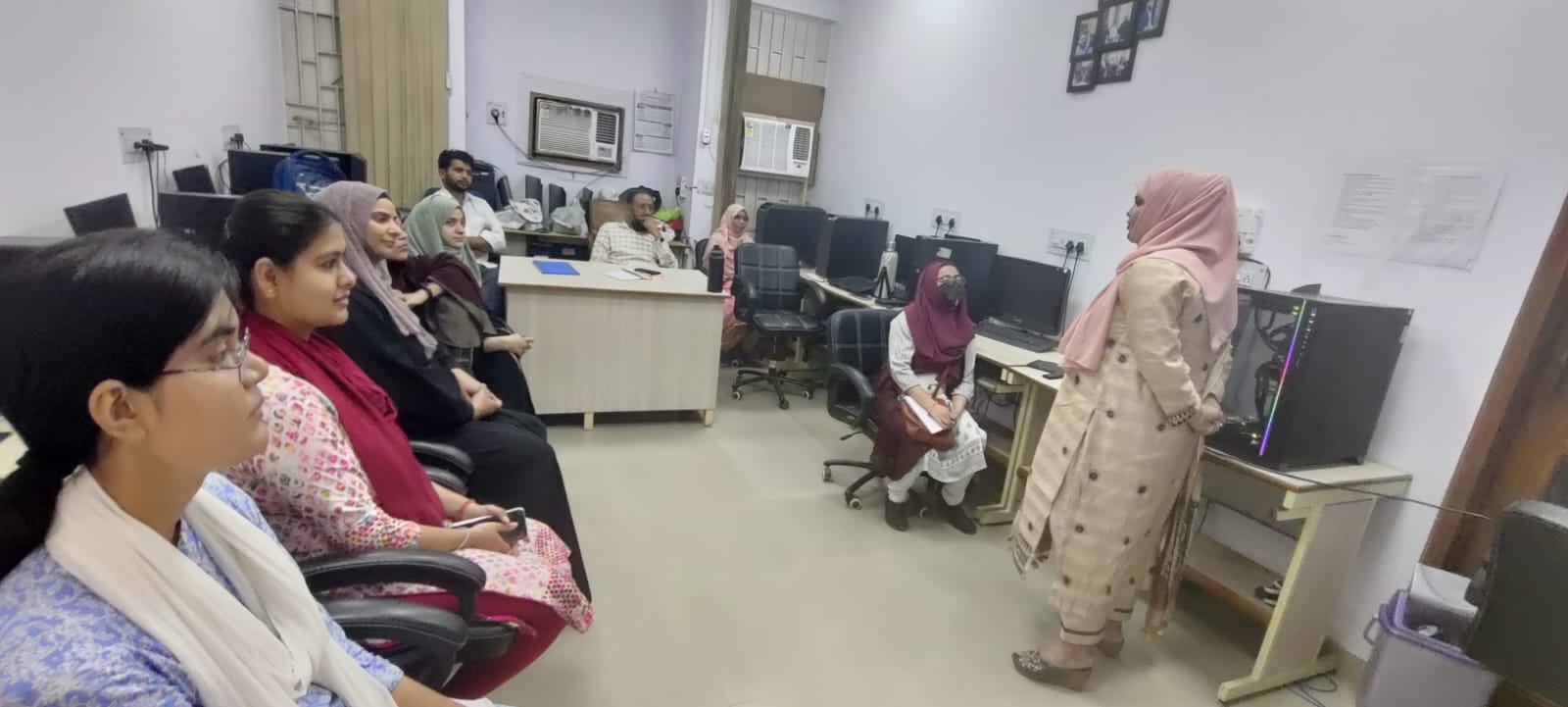Aligarh Muslim University, Aligarh
Multi-Omics Approach for Combating Antimicrobial Resistance for a Safer Tomorrow: Cutting-edge Research and Collaborations in Bioinformatics and Computational Biology at Aligarh Muslim University, Aligarh
The Bioinformatics Center at AMU, Aligarh addresses the critical issue of Antimicrobial Resistance (AMR) through a comprehensive multi-OMICS approach, targeting both environmental and clinical samples. Acknowledging the severity of antibacterial resistance as a major global threat, the central focus lies in exploring the mechanisms underlying resistance and understanding its modes of dissemination, followed by implementing effective control measures.
By employing cutting-edge high-throughput sequencing technology, the center aims to dissect the dissemination patterns of AMR genes within the environment. The understanding will drive the recommendation of crucial measures to contain and mitigate AMR. Ultimately, the center's overarching ambition lies in its significant societal impact, envisaging a world where effective strategies combat the threat posed by AMR.
The center has outlined specific objectives aligned with its goals. These include launching an extensive awareness campaign across various regions in the country as part of an outreach initiative. Additionally, organizing workshops, training sessions, and skill development programs focused on the target areas are integral to achieving these goals. The center aims to create an "AMR Information System" as a tool to effectively map the prevalence of AMR in both community and hospital settings. Simultaneously, the center plans to develop a mobile app for this "AMR Information System" ensuring accessibility and ease of use for a wider audience.
The center is engaged in organizing workshops, training sessions, and skill development programs focused on the target areas and also launching an extensive awareness campaign across various regions in the country as part of an outreach initiative. Thecenter aims to create an ‘AMR Information System’ as a tool to effectively map the prevalence of AMR in both community and hospital settings. Simultaneously, plans are in place to develop a mobile app for this ‘AMR Information System’, ensuring accessibility and ease of use for a wider user.

The center has achieved significant milestones in addressing AMR through extensive research efforts. Notably, it identified a comprehensive AMR profile within metagenomic samples extracted from Indian hospital sewage. It detected the colistin-resistant gene -5.1 for the first time in India and deciphered the mechanisms of colistin resistance in Klebsiella pneumoniae and Pseudomonas aeruginosa. These studies have been published in peer-reviewed journals. Furthermore, the center successfully developed a resistome profile specifically tailored for Indian hospital settings, empowering healthcare practitioners to adopt more effective antibiotic regimens. To raise awareness about AMR, the center organized an AMR awareness week, complemented by short workshops and seminars. Moreover, it gathered additional AMR data, laying the groundwork for the future creation of an AI-based AMR detection tool.
The center has successfully developed deep-learning based methods for detecting Antimicrobial Resistance Genes (ARGs) within complex metagenomic data. Leveraging sophisticated computing resources like the AMD-Ryzen Threadripper 3995 (64 cores & 128 threads), 256GB RAM, and NVIDIA-Quadro RTX 8000 48GB GDDR6 Graphic Card, these methods significantly advanced ARG detection.

The center engages in a collaborative effort with ICGEB and Delhi University, jointly contributing to the National Network Project. ICGEB will play a pivotal role by providing instrumental support in sequence data analysis. Simultaneously, Delhi University (DU), will actively participate in the analysis of Proteomics data. This collaborative endeavor brings together expertise from various institutions, pooling resources and knowledge to address this critical issue effectively.

